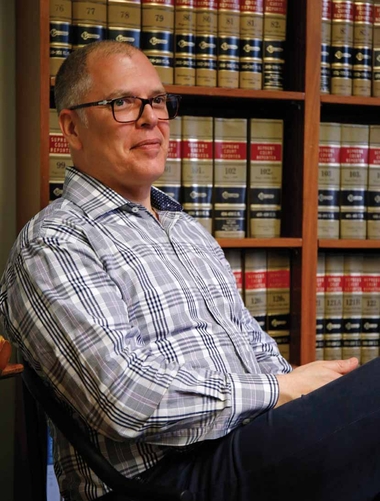A year after Obergefell, some challenges remain

By Rob Howard
Associate Editor
It has been a year since the Supreme Court’s decision in Obergefell v. Hodges extended same-sex marriage throughout the United States. For the most part, the instant transition to marriage equality was swift, although there was some opposition. Most of the problems were quickly resolved; two big ones remain.
Some of the cases gained a lot of notoriety. Kentucky Clerk Kim Davis went to jail for five days for refusing to have her office issue same-sex marriage licenses. Once other clerks took up the task, she was released, and marriages continued.
In Alabama, the state’s Chief Justice Roy Moore sent a letter to counties saying that, in spite of the Supreme Court’s decision, state law still banned same-sex marriage. For his trouble, Justice Moore was the subject ethics complaints, which resulted in his being removed from his position pending a decision by the Alabama Court of the Judiciary.
When Obergefell was decided, some states still banned adoption by same-sex couples. When a federal judge overturned Mississippi’s ban on adoption in March, couples in all 50 states and the District of Columbia were able to adopt.
Birth certificates remain a problem in some states. States with statutes that refer to husband and wife want to list only the parent with a biological connection to the baby, and require the spouse to do a second parent adoption.
The big problems are going to be harder to resolve.
Twenty-one states and the District of Columbia protect against discrimination based on sexual orientation. Twenty-nine states do not. This creates a situation where an employee could get married to a same-sex partner on Saturday, and be fired for being LGBT on Monday.
This is a critical situation, and one that LGBTQ activists are working hard to correct. Comprehensive protection for LGBT persons was introduced in 19 states. In 11 states, those bills died, although they remain active in eight others.
A federal Employment Non-Discrimination Act (ENDA) has been proposed, but has failed to gain traction in the GOP controlled Congress. ENDA would provide strong federal protections against discrimination, making it explicitly illegal to fire someone because they are lesbian, gay, bisexual, or transgender.
The second big problem is “religious objection” legislation. In many states, legislation has been introduced to allow religious-affiliated organizations, government officials, and in some cases for profit businesses and even individuals, to refuse service to people based on their “sincerely held religious beliefs.
Proposed laws are sometimes narrowly drawn to provide this protection to marriage service providers like photographers, bakeries, and wedding venues. But in many of the states, the proposals would extend to individuals the right to discriminate against LGBT people, and in some extreme cases unmarried parents.
The bills come under a variety of titles, but the effort boils down to creating the right to discriminate against LGBTQ persons. To the credit of most state legislatures, these measures have failed
These two problems can be solved, but it requires compromise – something that both anti-LGBTQ legislators and LGBTQ activists are reluctant to do. There is one model that provided protections to LGBTQ persons, and provided exemptions for religious-affiliated organizations in the same law. The state that did this is Utah, one of the most conservative in the nation.
When it became obvious that marriage equality was inevitable, Utah legislators, LGBT rights activists, the ACLU and the Mormon Church worked together to craft a law that provides explicit protections from discrimination based on sexual orientation and gender identity in housing and employment. In return, it also shields religious institutions that oppose homosexuality.
The Utah law is not perfect – it doesn’t include public accommodation in the protections. And some call it a “Trojan Horse” because it carves out exemptions for religious-affiliated organizations. But it doesn’t extend those exemptions to for profit businesses, or to individuals.
But it seems to many that a look at the Utah model might solve the two biggest problems facing same-sex married couples. The intersection of LGBT rights and religious rights is a complicated one, but solutions can be reached that take both these issues out of contention.
The Gayly – June 28, 2016 @ 12:15 p.m.
Read columns like this, LGBTQ news, and entertainment coverage in The Gayly’s July print edition, now on newsstands.





